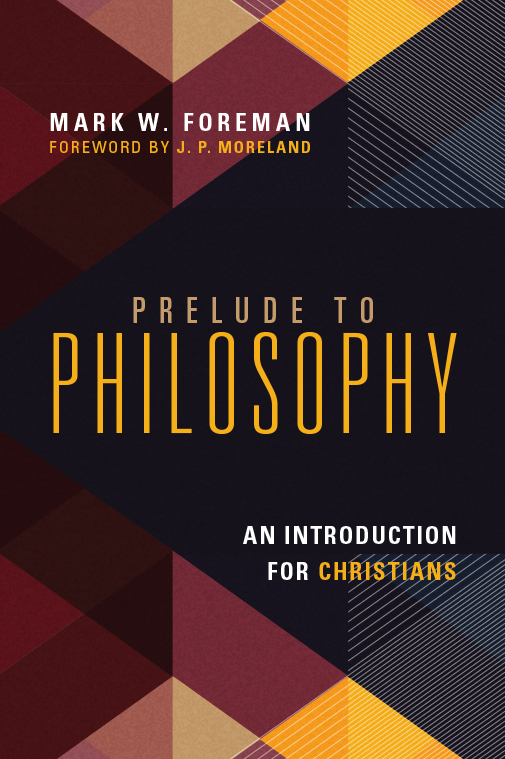| September 2, 2016 |
no comments
 Mark W. Foreman, Prelude to Philosophy: An Introduction for Christians (Downers Grove: IVP Academic, 2013), 208 pages, ISBN 9780830896608.
Mark W. Foreman, Prelude to Philosophy: An Introduction for Christians (Downers Grove: IVP Academic, 2013), 208 pages, ISBN 9780830896608.
According to Socrates, “The unexamined life is not worth living.” But to many, if not most modern people, pursuing the examined life is unappealing and even unnecessary. In today’s environment, no one knows what “spirituality” is, yet a flat stomach is of greater value than having a mature, Christian character. Is philosophy important? Surely it is, for in this world today we cannot agree about the status of babies, or the sexual makeup of the population. Why do I need philosophy if I have the Bible? Are not philosophers simply engaged in meaningless disputes? Mark Foreman contends that we need philosophy by addressing these and other questions in this prelude.
Whereas most introductions to philosophy provide a quick definition of it, and then proceed to delve into the branches, issues and problems of it, this book is a stark contrast. Unlike most introductions, this book looks at the underlying principles that are important for the study of philosophy. In the first half of the book, Foreman defines the task of philosophy, compares it to other disciplines and demonstrates its value to Christians interested in developing a more reflective faith. The second half introduces the topics of logic and argumentation, which are the essential tools of a philosopher. I will spend more time in focusing on the first part of this title than the latter half in what follows.
How we answer the basic questions of life if a reflection of our philosophy of life.
Chapter 1 describes the basic definition of philosophy, and thereafter characterizes it. In so doing, Foreman notes that it is both practical and beneficial, as our basic questions in life are based on our philosophy of life. He informs us that we get to know what philosophy is by defining it, describing it, comparing and contrasting it, and experiencing it in this chapter. He defines philosophy as “the critical examination of our foundational beliefs concerning the nature of reality, knowledge and truth, and our social and moral values” (24). He notes that philosophers are generally more interested in what lies behind beliefs and the method of attaining those beliefs than the beliefs themselves. He contends that philosophy examines everything, and that nothing is taken for granted, but that philosophers are usually concerned with foundational issues that have perennial application throughout history.
Philosophers are more interested in what lies behind our beliefs, the why and how we believe instead of what we declare those beliefs actually are.
Chapter 2 explains why developing a philosophical mindset is important in general. Examining and evaluating our beliefs, Foreman contends, is more than merely fulfilling a duty; it also yields two significant dividends: it enhances our enjoyment of life, and since most of our actions arise our beliefs, it is important to know if a belief is true or not. If philosophy is the pursuit of truth, then arguing is the strategy that guides that pursuit. One of the greatest values of the philosophical mindset is the role it plays in cultivating within us a worldview by which our knowledge can be examined and categorized. Chapter 3 discusses why the study of philosophy is vital specifically for Christians. Foreman refers to a biblical mandate to develop a philosophical mindset and suggests that this involves three elements: an appreciation of the role of reason, the construction of a Christian system of philosophy, and refutation of contrary philosophies.
Tags: foreman, mark, philosophy, prelude
Category: Living the Faith, Summer 2016
 Mark W. Foreman, Prelude to Philosophy: An Introduction for Christians (Downers Grove: IVP Academic, 2013), 208 pages, ISBN 9780830896608.
Mark W. Foreman, Prelude to Philosophy: An Introduction for Christians (Downers Grove: IVP Academic, 2013), 208 pages, ISBN 9780830896608.

